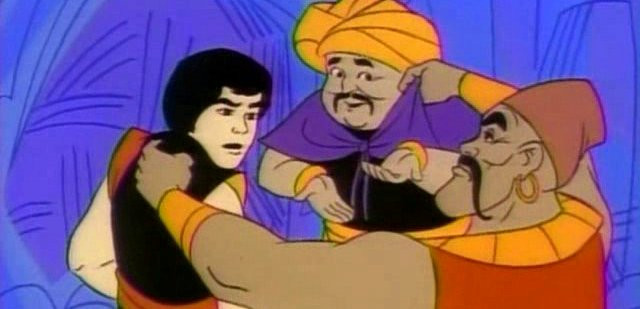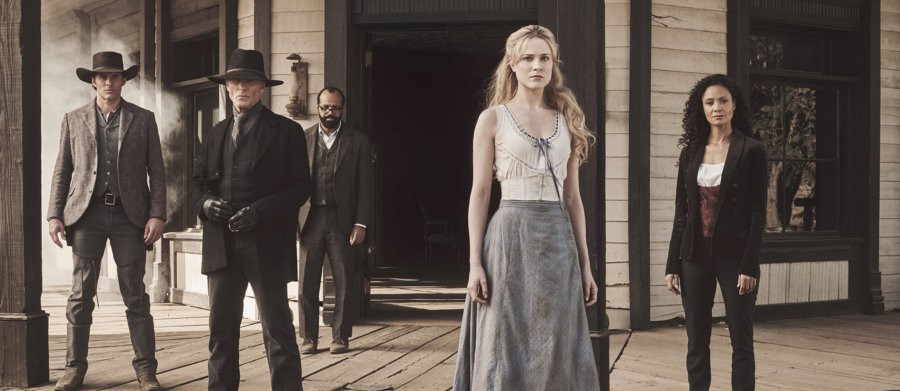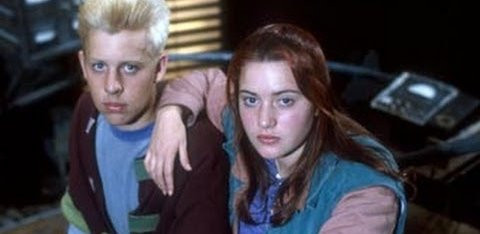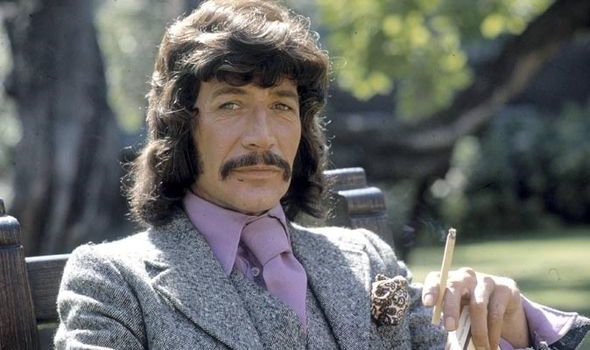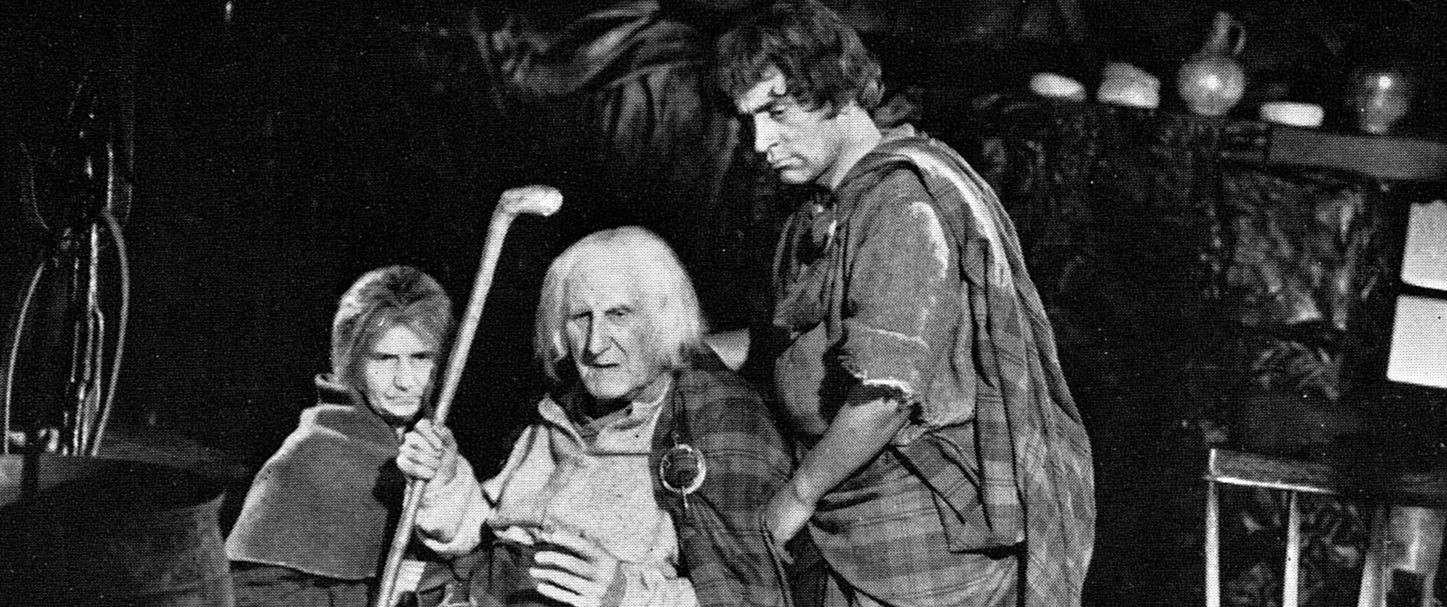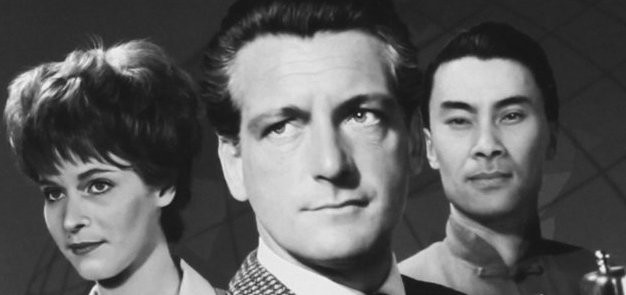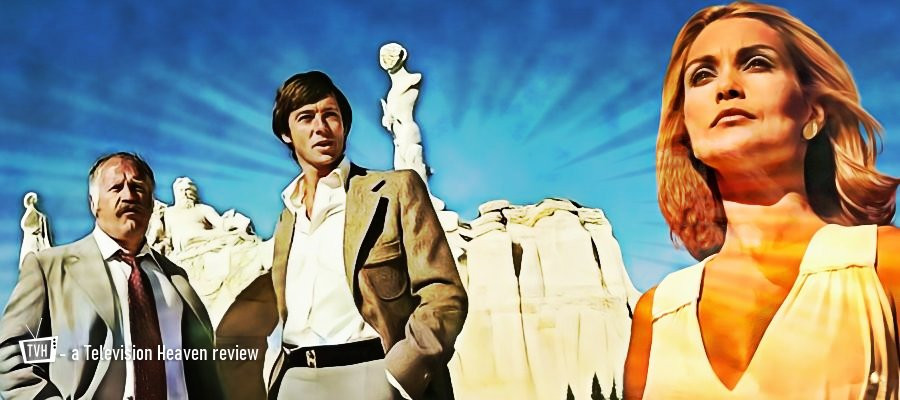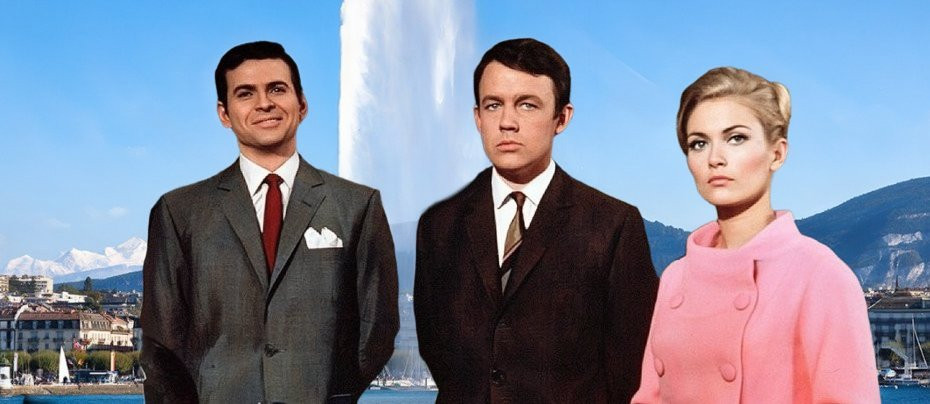
The Champions
1968 - United KingdomThe ITC stable turned its hand to international espionage with a subtly super-powered slant with Monty Berman and Dennis Spooner's action-adventure series The Champions.
The series simple yet effective premise involves secret agents Craig Stirling, Richard Barrett, and Sharon Macready, who suffer a near-fatal plane crash in the Himalayas whilst returning from a spying mission in China. Rescued by mysterious robed figures from a lost or forgotten civilisation who have the ability to endow the survivors with special powers, the trio are saved and returned home where they put these abilities to work for their Geneva based organisation, Nemesis.
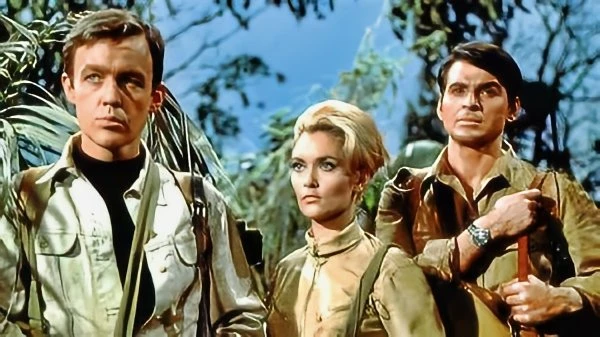
The agent’s new powers include telepathy (allowing them to communicate with each other over long distances), precognition, a heightening of their intellectual and physical abilities and of their natural senses - to the fullest extent of human capability. However, in spite of their new powers, the agents -the 'Champions of Law, Order and Justice'- are by no means invincible, needing to work very much as a team. Their boss at Nemesis, Tremayne, is unaware of their new powers as he assigns them to a host of impossible missions.
The idea for the series was heavily influenced by Berman’s interest in Tibetan philosophy, but this was never fully explored beyond being used as the plot device to establish the series premise in the first episode.
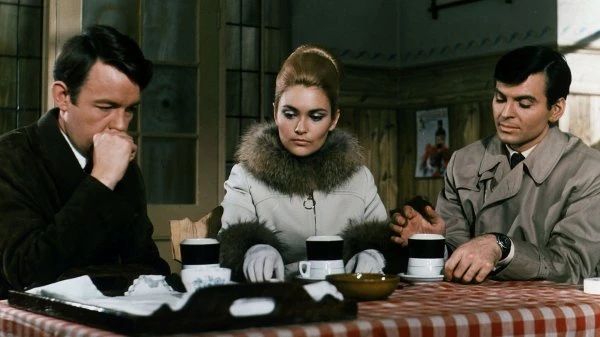
Several actors were screen tested for the main roles. Ian McShane (Lovejoy) was considered for Richard Barrett but William Gaunt, already a veteran of British serialised television in Sergeant Cork was the preferred choice of Lew Grade, who, along with a big influx of cash from the US network NBC, was bankrolling the series. In order to secure the international funding, it was essential to cast an American actor in the role of Craig Sterling. New York born Stuart Damon was, at that time, appearing in a West End musical and a deal was signed to release him from the contract for that to take up the part which was initially contracted for 30 episodes, with the possibility of a second series should the first be a success. Fashion model Alexandra Bastedo was cast as Sharon Macready even though she had previously done very little acting other than blink-and-you’ll-miss-her parts in That Riviera Touch and Casino Royale.
The only other regular character was Commander W.L. Tremayne played by Anthony Nicholls, a noted Shakesperean actor who took on the role after Douglas Fairbanks Junior pulled out after initially agreeing to the part.
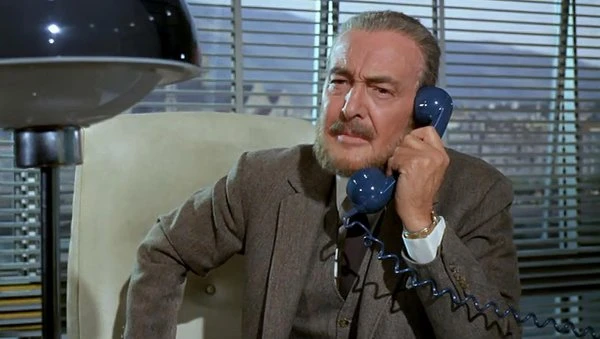
The actors worked under intense pressure with tight production schedules, often filming scenes for multiple episodes in the same week. As a result, they felt as though they were unable to establish their characters or build any cohesiveness in their relationships due to lack of any order - often not knowing which episodes they were shooting for on any given day. William Gaunt would later bemoan the fact that there was never sufficient time to rehearse, and the cast often had to learn lines in make-up, just before going in front of the cameras. Each episode was shot in just over a week and the actors were expected to be ‘on set’ for up to 13 hours a day. As was practice on many ITC shows, stock footage was used for many location and establishing scenes. They weren’t even on location for the series opening sequence; the character were superimposed over a shot of the Jet d'Eau fountain in Geneva and the exterior of an office block in Whetstone, North London stood in for Nemesis headquarters.
Tense, intelligently written scripts by the likes of Brian Clemens (The Avengers), Ralph Smart (Danger Man) and Terry Nation (Doctor Who) were complimented by warmly engaging performances from the central trio of actors. While imaginative direction, often from such luminaries as Sam Wanamaker, Freddie Francis and Roy Ward Baker, succeeded in convincingly depicting the use of heightened abilities without the need for the lavish special effects budgets available to similar US shows.
There was no shortage of guest stars, either established or on the rise, and these included David Lodge, Jeremy Brett, Anton Rodgers, Patrick Allen, Gerald Harper, Rupert Davies, Adrienne Corri, Roger Delgado, Donald Sutherland, Julian Glover, Philip Madoc, Gabrielle Drake, Steven Berkoff, Kate O'Mara, Burt Kwouk, Hannah Gordon, Nicholas Courtney, Imogen Hassall, Frank Thornton, William Squire, Josephine Tewson, and Anthony Ainley.
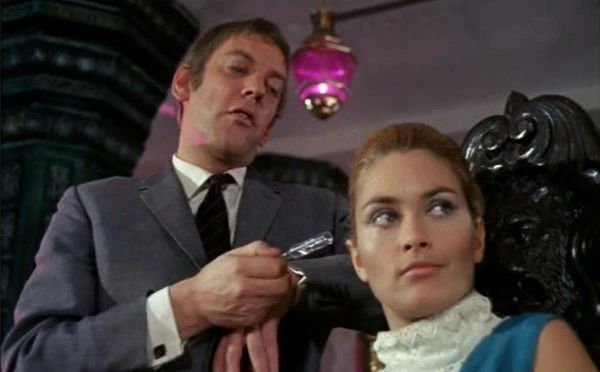
Critics in the UK and the USA hated the series! It was panned as ‘unbelievably bad’, and as ‘a peak of pure awfulness’, and viewing figures were poor due to bad scheduling. In the UK it wasn't shown all over the country at the same time. It debuted in September 1968 but Thames Television, in London, held it back until November 1969 when it could be shown in colour...viewers elsewhere had to be content with black and white transmissions. Even so, the series seemed to be more popular in the regions than it was in the capital. Around the world it fared much better and with broadcasts in over 60 countries it soon became one of ITC's biggest hits...just about everywhere...except America where it was given a low-viewership summer slot.
Without the support of an American network any thoughts of a second series were cast aside, which is a great shame because The Champions remains as another excellent example of British Television's long line of enjoyable and well-crafted 1960s adventure series which looks as good today as it did on its original transmission, since it was shot on film rather than video.
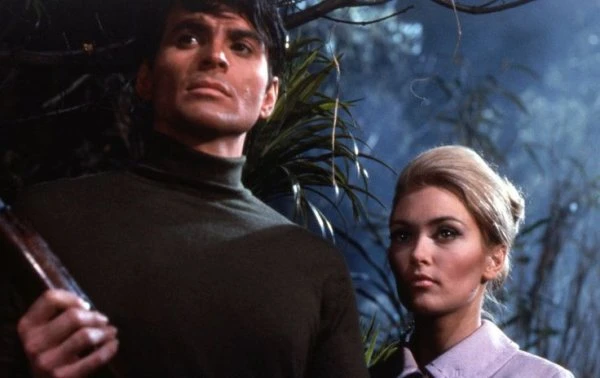
The series features a stylish aesthetic that aligns with its international espionage theme. While some of the special effects may feel dated by modern standards, the practical effects and clever camera work still impress. The action scenes are well-executed, though not overly reliant on combat or violence, as the show often emphasizes tension and suspense over outright confrontation.
The writing in The Champions can be a bit uneven, with some episodes far more engaging than others. Certain storylines veer towards predictable spy tropes, while others deliver exciting fantasy twists that feel ahead of their time. The show occasionally suffers from pacing issues, with slower sections that might test the patience of modern viewers accustomed to fast-paced storytelling. However, the more imaginative episodes often make up for these lulls, providing enough intrigue and suspense to keep viewers invested. The series has endured as a cult favourite. Its mix of action, espionage, and the supernatural makes it a unique entry in the 1960s television landscape.
Seen this show? How do you rate it?
Seen this show? How do you rate it?
Published on November 8th, 2024. Written by Marc Saul for Television Heaven.


